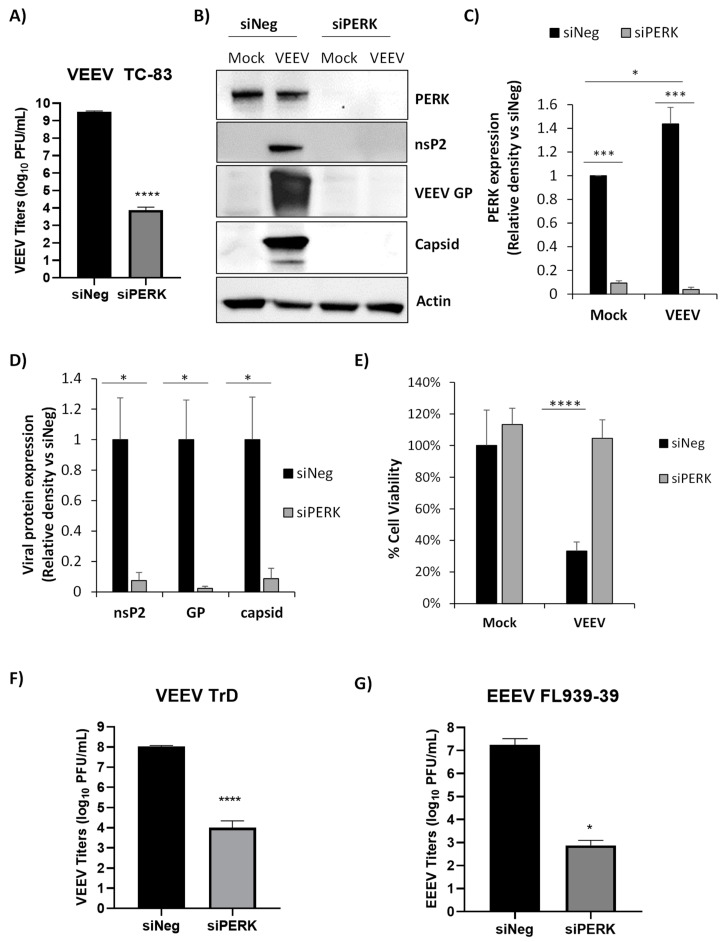Figure 1.
siRNA knockdown of protein kinase R (PKR)-like endoplasmic reticulum kinase (PERK) dramatically decreases Venezuelan equine encephalitis (VEEV) and eastern equine encephalitis virus (EEEV) replication in primary astrocytes. Primary human astrocytes were transfected with 100 nM of siNeg or siPERK siRNAs. At 48 h post transfection, cells were mock infected or infected with VEEV TC-83 (MOI 5). (A) Viral replication was analyzed via plaque assays in Vero cells using supernatants collected at 18 hpi. (B) Cell lysates were collected at 18 hpi and analyzed by immunoblot. PVDF membranes were probed for levels of PERK, VEEV nsP2, VEEV GP, and VEEV capsid. β-Actin was used as a loading control. (C,D) Data show the quantitation of the respective immunoblots. Protein levels expressed in each blot were normalized to β-actin and normalized values were calculated relative to siNeg-transfected cells. N = 3, * p ≤ 0.05, *** p ≤ 0.001. (E) Cell viability was measured using CellTiter-Glo assay at 48 hpi. Data were normalized to siNeg-transfected and mock-infected cells. Data are expressed as the mean ± SD (n = 4). **** p ≤ 0.0001. (F,G) Primary astrocytes were transfected with 100 nM of siNeg or siPERK siRNAs. At 48 h post transfection, cells were infected with (F) VEEV TrD (MOI 5) or (G) EEEV FL93-939 (MOI 5). Viral replication was analyzed using supernatants collected at 18 hpi via plaque assays in Vero cells. Data are expressed as the mean ± SD (n = 3 for siNeg and n = 5 for siPERK samples). * p ≤ 0.05, **** p ≤ 0.0001.

